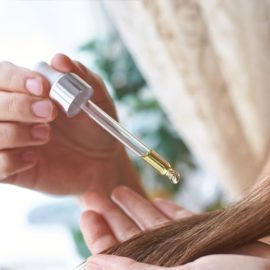A gathering of leading cosmetic scientists (as its acronym indicates: International Federation of Societies of Cosmetic Chemists), it represents a showcase of global efforts towards increased cosmetic efficiency and sustainability. Its high scientific and educational standards gather 16,000 members on a global basis, a worldwide community of peers that involves both prestigious scientists and brands, including L’Óreal and Shiseido. So, as the 2023 IFSCC Congress approaches, many wonder what new green technologies applied to cosmetic science will be presented.
In 2023, the 33rd IFSCC Congress is set to take place in Barcelona (Spain) following the theme of ‘Rethinking Beauty Science’. It represents the perfect opportunity to share new developments in green technologies, and at Provital we are excited to showcase our new discoveries around microbial symbiosis and plant endophytes.
As a company, we have contributed to IFSCC congresses and conferences since 1992.. This year, we are ready to share more about our recent focus on the use of plant symbiotes as an innovative source of biomolecules with cosmetic applications that has taken us to new, previously unexplored territories.
Content
Plant endophytes: Provital’s cutting-edge green technology at IFSCC Congress
The natural cosmetics segment has been exploring new ways of guaranteeing sustainability. From supply chain ethics to increased ingredient transparency, the question of how to make the most of nature’s cosmetic properties while protecting the environment has remained a priority.
Plants produce a vast array of metabolites, which are used in the development of natural-based products for cosmetics. However, there’s a major limitation in
this approach: these metabolites are often synthesized in little amounts or only in specific tissues. This means huge plant biomass is needed to produce small amounts of the desired compounds, making the process both economically and ecologically unfeasible and leading to issues such as land overuse and loss of biodiversity.
However, our research around plant endophytes opens the door to feasible green technologies that act as an alternative to produce high-valued natural compounds for the use of cosmetic science.
Endophytes are symbiotic microorganisms that live inside plants, promoting beneficial effects on their growth and development. Labeled as plant microbiota, these microbes grow in plant-living tissues, promoting beneficial effects on plant development.
Research has shown they exhibit a remarkable capacity for synthesizing bioactive phytochemicals, making them a viable alternative for producing cosmetic actives while mitigating the overexploitation of host plants. Additionally, many bioactive compounds isolated from endophytes are also produced from plant biosynthetic pathways and belong to the main structural classes of specialized metabolites including isoprenoids, phenylpropanoids and alkaloids, among others.
Provital’s research around plant endophytes
Through our research around plant endophytes, at Provital we have successfully developed a novel platform for the isolation and biotechnological production of plant endophytes as a sustainable source for natural and traceable active cosmetic ingredients.
This is precisely what we present at IFSCC Congress in 2023, an advancement of what will represent a sustainable source for future natural and traceable active cosmetic ingredients.
Our research took place in two stages: first, we isolated a relevant collection of endophytic strains; secondly, we screened bioactivities through metabolomic, bioinformatic and in vitro analyses to select the best candidates for subsequent developments.
For the first time in cosmetics, we obtained promising results with a fermented extract of the endophytic yeast Kwoniella mangroviensis. In fact, these are some of the key findings and techniques that led us to fill for a patent (still pending) and represent the body of one of our most promising scientific posters presented in this IFSCC edition:
- Metabolomic analysis of K. mangroviensis ferment extract to show the presence of bioactive secondary metabolites with interesting antimicrobial and anti-inflammatory bioactivities.
- In vitro proof on the modulatation of the microbiome balance in a reconstructed 3D skin model
- Anti-pollution effects demonstrated in human keratinocytes exposed to urban dust
- RNA-Seq whole-transcriptome analysis to show its capacity to induce the formation of extracellular matrix in human dermal fibroblasts, indicating several protecting and pro-aging activities.
Our research has thus shown how endophytes can be explored as ‘bio-factories‘ of natural bioactive compounds. Specifically, t this scientific poster provides evidence about the positive cosmetic in vitro activities of the fermented extract from the endophyte Kwoniella mangroviensis.
Nonetheless, as we present our developments to the cosmetic science community, we also continue evaluating the cosmetic properties and growth conditions of other promising candidate endophyte strains.
Therefore, the advances featured in this poster provide a fertile soil for the growth of an increasingly sustainable industry, where green technologies based on innovative solutions like microbial symbiosis put efficacy at the forefront.
No comments yet
There are no comments on this post yet.





Leave a comment